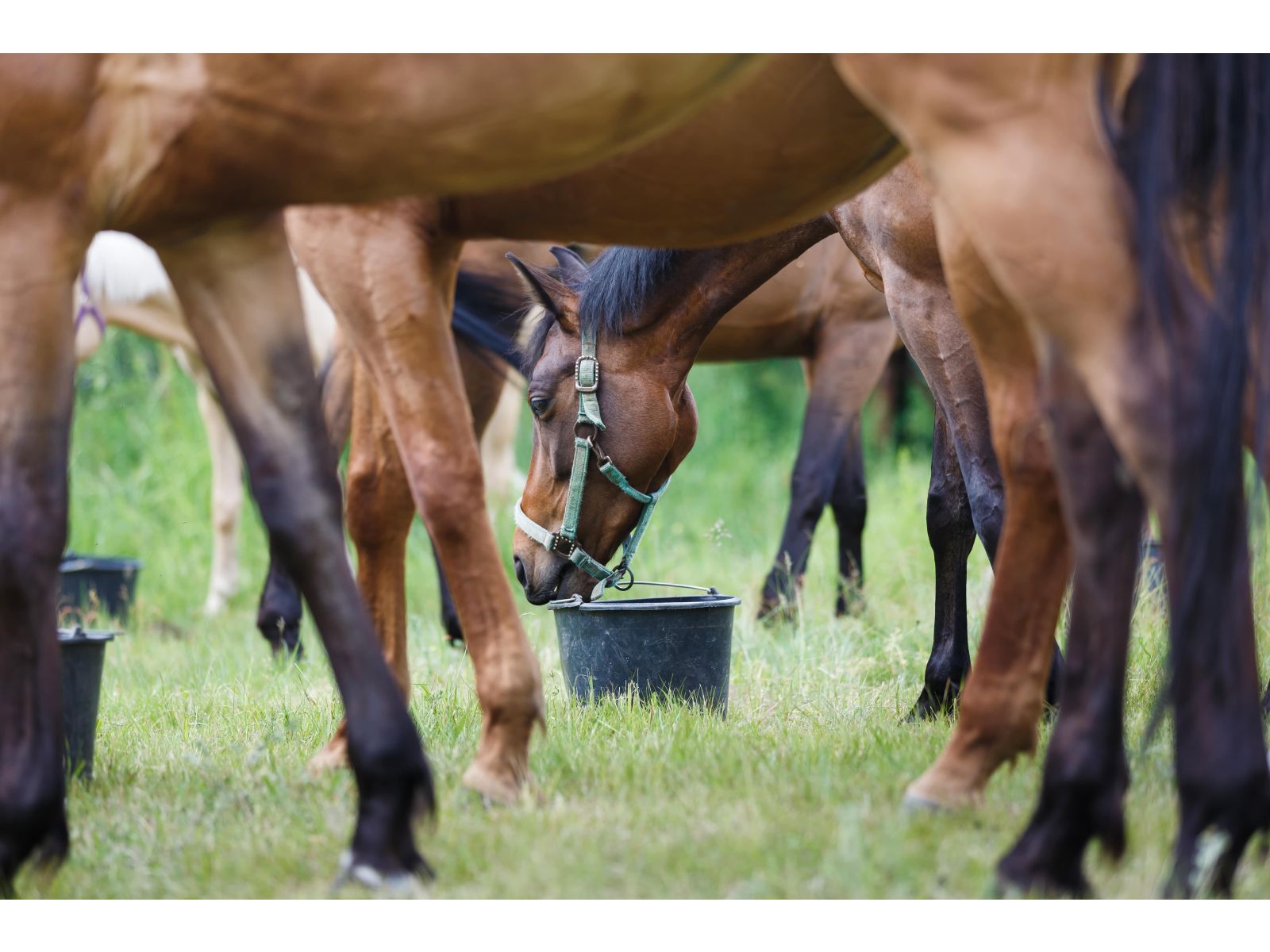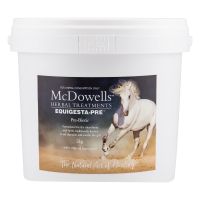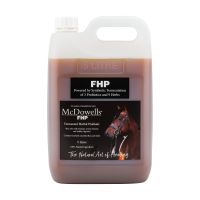Improving a horse's microbiome involves creating a healthy environment in the horse's gut for beneficial microorganisms to thrive, which in turn can help support the horse's overall health and well-being...
What is the microbiome?
The microbiome refers to the collection of microorganisms (such as bacteria, fungi, viruses, and archaea) that live in and on your horse’s body.
Why is it important?
Like all animals, horses rely on a complex ecosystem of microorganisms to help them digest their food, produce nutrients, and support their immune system.
The horse's microbiome is particularly important in the digestive system, as it helps break down tough plant fibres and extract nutrients from the food they eat. The horse's large intestine (cecum and colon) contains billions of microorganisms, which ferment the fibrous material and produce volatile fatty acids that the horse can use as a source of energy.
What can affect the microbiome?
However, the composition of the horse's microbiome can be affected by various factors, such as changes in diet, stress, medications, and environmental conditions. Disruptions to the microbiome can lead to digestive problems, such as colic and diarrhoea. Therefore, it's important to maintain a healthy and diverse microbiome in horses, which can be achieved through a balanced diet, appropriate feeding practices, and good management practices.
How do I know if my horse has gut problems?
Some signs could include;
Diarrhoea
Weight loss
Abdominal pain/colic
Poor appetite
Poor coat condition
Weak immune system
Behavioural changes
How to improve a horse’s gut health
Feed little and often
Feed plenty of fibre
Avoid making sudden changes to the diet.
Limit/avoid the use of antibiotics where possible
Use prebiotics and probiotics
Prebiotics and probiotics
Prebiotics are non-digestible fibres that stimulate the growth of beneficial bacteria in the gut, while probiotics are live microorganisms that can help restore the natural balance of the gut microbiome. Supplements containing both prebiotic and probiotics are available for horses and can be added to their diet.
Common examples of prebiotics in equine diets include beet pulp, oat hulls, and fructooligosaccharides (FOS), all of which microbes can ferment.
McDowells Recommendations
Speedi-beet
Speedi-Beet is a highly nutritious, quick soaking beet pulp feed that’s 95% sugar free with no added molasses.
Made using British Beet Pulp, Speedi-Beet is subjected to a cooking process to produce a palatable and all-around superior beet pulp for horses. It’s also safe to feed to horses prone to laminitis.
Equigesta-Pre
Equigesta-Pre contains a combination of pure herbal powders, brewer's yeast and bentonite clay. Traditionally this combination has been used to aid and promote beneficial intestinal microorganisms.
Our unique blend can be used daily as an equine prebiotic to support and stimulate the growth and activity of good bacteria in the digestive system.
FHP
FHP contains beneficial microbial flora; Lactobacillus casei, Lactobacillus plantarum, Saccharomyces cerevisiae, and 9 herbs.
Symbiotic fermentation is the process where multiple organisms (yeasts, acetic acid bacteria, lactic acid bacteria and others) interact to allow the active compounds from herbs to express their true biological nature when digested.
Fermented botanicals offer a broad spectrum of nutrients which help to create a favourable environment in the animal’s gut that contributes to their overall health via the microbiota.





